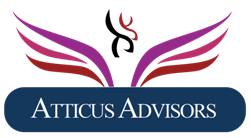There’s a familiar narrative in startup culture—one where inspired founders raise millions in a pitch-perfect moment and scale to unicorn status overnight. But for most seasoned founders and co-founders reading this, the reality is far more nuanced, often defined by long nights, mounting pressure, and a cycle of persistent trial and error. A recent study reinforces this with sobering data: 72% of entrepreneurs report grappling with mental health challenges due to the stress of building a business.
Chronicle: The Power of the ‘Messy Middle’
Mayuresh Patole, founder of presentation software startup Chronicle, doesn’t shy away from this less glamorous reality. He’s vocal about the “messy middle”—a space many founders live in but rarely discuss publicly. Patole left BCG four years ago, raised $7.5 million from Accel and Square Peg, and dove headfirst into his entrepreneurial dream. What followed was not immediate success, but rather a series of product iterations that didn’t land. The first three versions of Chronicle were scrapped entirely—one was labeled “a total waste of time” by Patole himself.
Fast forward to today, and Chronicle is finally launching its fourth-generation product in public beta. Encouragingly, the private beta attracted over 100,000 signups—from students to marketing executives at blue-chip firms like Nike and IBM. The turning point? Staying the course, listening to users, and iterating until the product met evolving market expectations.

Reimagining Presentations for the Social Media Era
Chronicle’s co-founder, Tejas Gawande, articulates the core insight that now drives the product: attention spans are shorter, and expectations are higher. “What worked in presentations a decade ago falls completely flat today,” he says. Chronicle aims to help users move beyond static, slide-by-slide formats to interactive, media-rich experiences. Their approach is modular—built on “widgets” rather than slides—and infused with AI to assist in designing compelling, scannable content.
In effect, Chronicle isn’t just a tool. It’s a response to how we now consume information—visually, quickly, and with a demand for higher engagement. For founders navigating industries where customer expectations are being redefined by digital behavior, Chronicle’s story underscores a key lesson: understanding not just what people use, but how they think and interact is essential.
The Reality of Competing in a Saturated Market
Despite Chronicle’s momentum, success is far from guaranteed. The presentation software space is as crowded as ever. Microsoft PowerPoint remains deeply embedded across global enterprises. New entrants like Presentations.ai (also backed by Accel), PitchAvatar, and Prezi are carving their own niches with AI and animation-led features.
But the opportunity is real. ResearchandMarkets estimates the presentation software market will more than double in size—from $6.8 billion in 2023 to $15.7 billion by 2029. The growth is being fueled by hybrid work, remote collaboration, and a shift in digital communication norms.
Within this context, Chronicle’s biggest advantage may not just be its product—it’s the resilience and clarity of its mission. “We’ve stayed true to our original goal: making sure users never end up with a bad presentation,” says Patole. That level of product conviction, when married with real user feedback and iterative thinking, can outlast flashier competitors.
Why Chronicle’s Story Matters for Founders
For experienced entrepreneurs, Chronicle’s journey is a case study in patience. It’s also a reminder that real product-market fit is often a winding path—less about MVPs and more about enduring the friction between vision and reality. The startup’s four-year evolution challenges the idea that speed is always king. Sometimes, persistence and introspection yield more durable outcomes.
As digital experiences continue to redefine how people consume and present information, Chronicle is betting that its reimagined format—and AI-enhanced assistive design—can resonate widely. But whether or not it wins, the bigger takeaway remains powerful: success isn’t always about getting it right the first time. Sometimes, it’s about having the courage to get it wrong a few times and still keep going.
